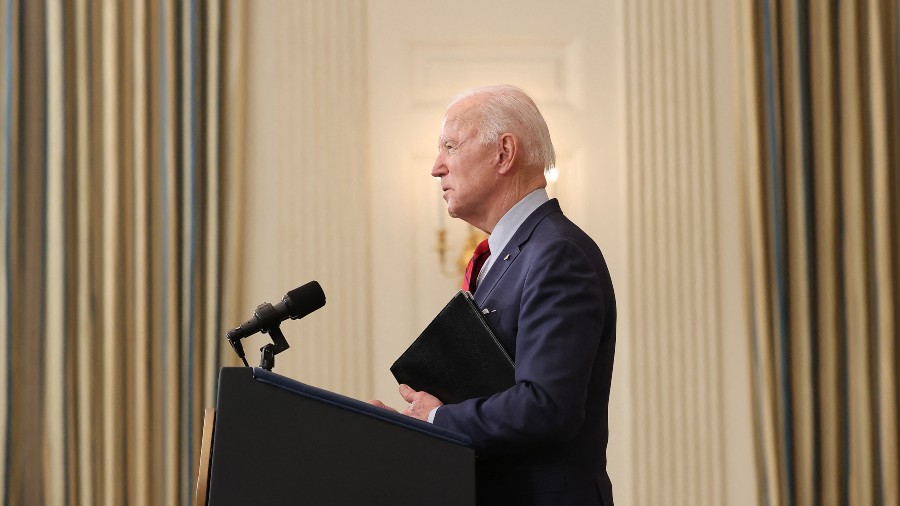
“The fight against corruption will be the focus of President Biden’s policy” for our country and also Honduras and Guatemala, “said Ricardo Zúñiga, US special envoy for the Northern Triangle.
This morning, two prominent U.S. government officials for the region held a press conference where they reiterated the Biden administration’s emphasis on reducing the causes of migration, including the systematic corruption that plagues everyone. the countries of the region.
Juan González, senior director of the National Security Council for the Western Hemisphere; and Ricardo Zúñiga, State Department special envoy for the Northern Triangle also stated that the U.S. government will carry on this conversation not only with governments, but also with civil society.
In addition, they explained that the approach of the new administration is diametrically opposed to that of the previous government, Donald Trump, where they focused exclusively on stopping the flow of migration and highlighted the causes of this. mass exodus of people, such as a solid institutionalization, transparency and create opportunities.
Respect for institutions
Zúñiga, who was appointed special envoy for the Northern Triangle earlier this week, said the United States’ relationship with El Salvador is crucial and highlighted how the American country has collaborated in strengthening of Salvadoran democracy.
He therefore called on the government not only to promote employment and improve public safety, but also to respect democratic institutions. This, he added, “will create the conditions for investing” and thereby generate opportunities.
“It is important to have separation of powers, that allegations of corruption are addressed by independent actors and that there are independent cuts to respond to these accusations,” Zúñiga added.
SEE ALSO: EE. UU. Appoints Ricardo Zúñiga, diplomat who will monitor the fight against corruption in El Salvador, Honduras and Guatemala
In addition, he said they are ready to strengthen relations “with all governments that are prepared to strengthen democratic culture, respecting freedom of the press and expression and meeting the needs of society.”
Zúñiga’s words come at a time when it is being criticized that Nayib Bukele’s government has hit institutionalization and press freedom in less than two years of his administration. In this period, they highlight a military takeover in Congress, as well as harassment in the critical and independent press in the country.
On the latter, Juan González stressed that respect for freedom of the press will be a central requirement of the Biden administration to collaborate and cooperate with the governments of the Northern Triangle.
“For us to be able to solve (the region’s) problems in a transparent and constructive way, a free press is needed,” he said, adding that this guarantee is “indispensable for democratic strengthening”.
“It is the responsibility of governments to respect and promote the role of the press even if one is criticized,” he said.
U.S. lawmakers from both parties have condemned the Bukele government attacks on the media, and while the Trump administration downplayed that attitude, Biden’s management is making it a top priority.
An anti-corruption task force
U.S. officials reiterated that the Biden administration will launch a regional anti-corruption task force, with the purpose of collaborating with investigations, providing capabilities to local prosecutors and institutions, and punishing Central American officials involved in corruption, laundering money or assets, drug trafficking and human rights violations.
González and Zúñiga explained that this task force has been raised in view of the fact that institutions such as the International Commission Against Impunity in Guatemala (CICIG) and the Support Mission Against Corruption and Impunity in Honduras (MACCIH) culminated their mandate and have left a gap in the fight to plunder public resources. He also stated that in El Salvador only a truly independent CICIES can play this role of supporting local institutions.
When he was vice president in Obama administration, Gonzalez said, “President Biden supported both (MACCIH and CICIG) and the lack of these commissions has left prosecutors and civil society lacking tools. enough to form cases and combat these issues. “
Finally, the two officials stressed that they will seek to work with the civil society of the countries and take advantage of their experience to promote transparency to strengthen democratic institutionalization.
“The United States will have a preferential relationship with actors committed to anti-corruption efforts and many actors in civil society and the private sector who understand the need for the rule of law,” added special envoy Zúñiga.